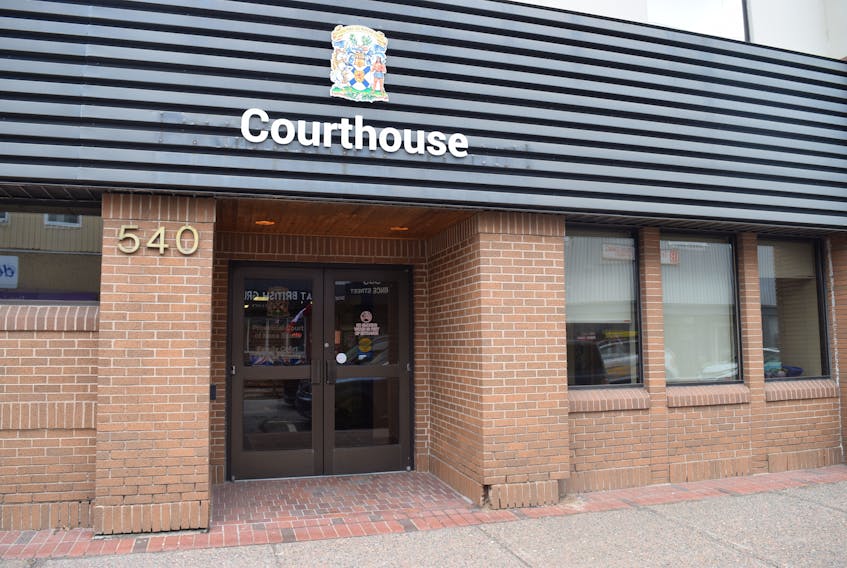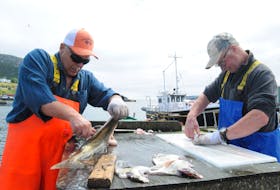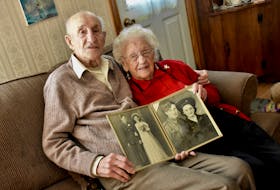TRURO, N.S. — Individuals who provided information to the RCMP as part of the investigation into Nova Scotia’s mass murders in April could be required to argue in court as to whether they want their identities to remain sealed.
“Part of the process we talked about earlier was this notion of the Crown’s, during the initial argument before you, asserting privilege on behalf of various individuals who are referred to in the warrants,” said media lawyer David Coles during a teleconference hearing from Truro provincial court Friday morning.
The hearing is part of an ongoing application by a number of media organizations to unseal information contained in the search warrants and other documents related to the police investigation into the shootings.
Although some information has been previously unsealed, those documents came highly redacted, including the names of all individuals who provided statements to the RCMP following Canada’s largest mass murders on April 18 and 19.
“We know their names are redacted sort of almost automatically,” Coles said during the hearing with Judge Laurel Halfpenny-MacQuarrie. “And, I guess my concern is that, clearly, we oppose those redactions. As I understand it, these individuals essentially gave statements to the police. These aren’t individuals whose homes were subject necessarily to a search warrant.”
Coles questioned whether if someone had volunteered to provide a statement to police, what would be the real basis for the Crown to want their identities to remain confidential.
“Because obviously the credibility of the person saying certain things is very germane,” he said. “And there is a public interest in knowing that. So, I perceive that we will certainly be objecting to the concealing of the names of certain individuals, some of whom have already been made public in other contexts,” Coles added.
A graph, defined as Appendix A, was provided by the Crown on Friday, June 12 showing the reasons for information to be redacted, including such things as the names and identities of innocent third parties; specific details of an assault on an innocent third partie or information related to the specific details that caused the injuries or deaths of some of the victims; information the Crown feels would compromise the ongoing investigation; information on innocent third parties below the age of majority; names of innocent third party businesses; civic addresses, vehicle licence plate numbers and firearms information that could compromise the ongoing investigation and so on.
If the Crown does object to the redaction of all third-party names, Coles said, he is prepared to argue against it on behalf of his media clients.
“I’m optimistic that I can move you to not accept that argument,” he said.
The process will be moving into open court session at a later date. The Truro courtroom is not one that has been given clearance for open sessions under ongoing COVID-19 restrictions although the larger, newer courtroom in Port Hawkesbury has been.
Crowns are required to provide further information on the application process to the court by June 26, after which a further hearing date has been set for June 30.
Coles has also applied for six more files to be unsealed but the Crown has said it wants to complete the process involving the initial seven warrants and related ITOs before dealing with the “time consuming” process of further review and vetting.
In explaining the government’s position, federal co-Crown Mark Covan described the Appendix A graph, which was released on Friday, as “a product of the fact that the investigation is ongoing... .”
“So, one of the things that we have to do as Crown counsel when we face these applications is, obviously, we have vetted the documents, but then we have to go back as the investigation progresses and ask if the investigation needs to continue to be protected,” he said. “If it doesn’t, then we have to release that information. That process will be ongoing right up until the day that this matter is heard (in open court). And it’s an incredibly time-consuming process.”
Twenty-two people were gunned down during the shooter’s 13-hour rampage that took place in five rural communities between Portapique and Enfield, where he was fatally shot by the RCMP while stopped at a gas bar.
The gunman used a mocked up RCMP vehicle and police uniforms during his killing spree. The RCMP have said the weapons he used were obtained illegally, including a service revolver belonging to Const. Heidi Stephenson, who was one of his victims.
Previous unredacted warrant information revealed that RCMP investigators had seized and searched such electronic equipment as a cellphone, computer, Acer tablet, GPS navigation devices and a data-storage card that had belonged to the gunman.
No information has been provided from the redacted warrants to show what police have uncovered from those seizures.
However, other information contained in previously unsealed documents showed witnesses had described the gunman as being a psychopath and a sociopath who was paranoid and abusive, that he bragged about his gun collection and had recently purchased $800 worth of gasoline, some of which he used to set fires to his own properties and others.









